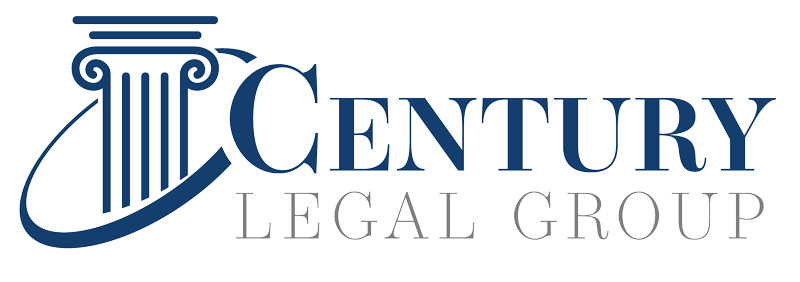Anyone facing large amounts of debt is under a seemingly insurmountable level of pressure. Not only getting out of the debt seems daunting, but the options can be just as confusing and stress-inducing as the debt itself. There are three terms most people are likely to hear when it comes to debt resolution:
- Debt consolidation
- Debt settlement; and
- Bankruptcy
These seem like interchangeable terms to some people. But they are each uniquely different tools, and it is extremely important to understand how each one can help you, hurt you, and impact your overall future.
DEBT CONSOLIDATION
Debt consolidation can be an option for people who have high enough credit to qualify for what is called a debt consolidation loan. A debt consolidation loan is a loan that you get to pay off your debts, and then make payments to one lender, rather than the several different payments you were making. Most debt consolidation loans are fixed-rate installment loans, which means the interest rate never changes and you make one predictable payment every month. So if you have three credit cards with different interest rates and minimum payments, you could use a debt consolidation loan to pay off those cards — leaving you with just one monthly payment to manage instead of three. Depending on the interest rates, the payment may be lower or higher than the combined three payments.
Possible Benefits:
- Get out of debt quicker.
- Generally, save money on interest costs
- Make repayment less of a hassle by simplifying your monthly payments and repaying on a fixed schedule
- Builds credit by showing three credit cards paid in full
Risks:
- Depending on your credit score and the terms of the loan, you may pay more interest
- There are often upfront costs
- Damage to your credit. Often time those with a debt consolidation loan will be tempted to begin using their credit cards again, increasing their total debt and landing them in a worse situation
DEBT SETTLEMENT
While debt consolidation loans are an option, they are not an option for debtors who do not have the credit to acquire a loan, and not always the best option for some who have been approved. An alternative to debt consolidation is debt settlement. This is where you work with professionals who deal with your creditors in an attempt to settle your debt for less than what you owe. In most debt settlement arrangements, you will default on your debts (as advised based on your situation), and then a law firm will work with those creditors on an agreement that is better for both parties. It is better for the debtor because they can get rid of their debt and pay less money than they owe, and it is appealing to many creditors because they know they will be getting paid something rather than receiving nothing on the debt— which would be the result if the client filed for bankruptcy. For instance, if you owe $8,000, and a settlement is made for $4,000, both parties leave with something gained.
Potential Benefits:
- Get out of debt quicker
- Save money by paying less than you owe and avoiding interest
- Reduces the amount you pay to creditors each month giving you more money to save or spend.
Potential Risks:
- Damage to your credit. Debt settlement typically requires that you default on your debts. Your creditors will report that to the credit reporting agencies and it will be reflected on your credit score.
- Sometimes an amicable settlement may not occur. When this happens, you may end up being served with a summons to appear in court.
- Failing to use financial prudence after the s Many people who have settled their debts quickly find themselves in a similar situation without even realizing they were making the same mistakes.
BANKRUPTCY
Bankruptcy is probably the most commonly known tool for debt relief and the least understood. This is because bankruptcy laws are ever-changing, there are many complicated statutes, and multiple types of bankruptcy. The laws also vary by state. Most people cannot navigate their way through filing for bankruptcy without the help of an experienced bankruptcy attorney. Chapter 7 Bankruptcy is generally what an individual would file for in order to attain debt relief. This type of bankruptcy allows an individual to sell some or all of their nonexempt assets in order to dispose of unsecured debts such as credit cards and medical bills.
Possible Benefits:
- Unsecured debts can be eliminated
- Creditors cannot harass you once you file for bankruptcy
- You can breathe a little easier being out from under crippling debt
Possible Risks:
- A bankruptcy will stay attached to your credit for seven years and it is a public record, making it difficult for you to borrow again
- Not everyone is eligible for bankruptcy
- You may be forced to surrender the property, such as a home, automobile or personal property
WHICH IS RIGHT FOR ME?
When it comes to debt relief, no one solution will be a magic bullet, and no one solution is the best solution for everyone. If you are searching for debt relief, please contact us at Higbee & Associates. We have professionals and attorneys trained in all of these areas that are here to help walk you through this difficult time.
Author: Attorney Brian Walker, 10/1/2022
This site contains attorney advertising. It is not legal advice prepared for your unique situation. Statistics about clients, success rates and the number of years with an A+ rating with the Better Business Bureau include data while doing business exclusively as The Law firm of Higbee & Associates. Testimonials or reports of past results do not constitute a guarantee, warrant, or prediction regarding the outcome of your legal matter. Results portrayed are dependent on the fact of that case and the results may differ if based on different facts. Photos on the website, other than on the About page, are not of actual clients or attorneys. The firm’s lead attorney in the state is responsible for the advertising in that state. The lead attorney for each state can be found on the About page. The law firm only accepts clients or handles matters in states where it is licensed. Calls may be recorded for training and quality control purposes.






